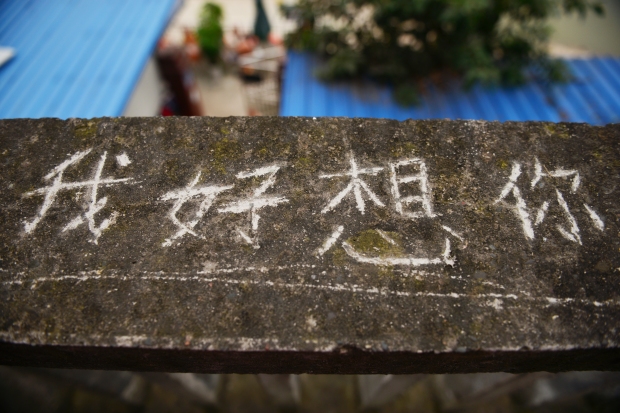
Despite a long history of relative apathy towards same-sex behavior, China’s attitudes towards the gender and sexually diverse (GSD) community has become more negative since the Qing Dynasty came to an end in the early 1900s. During the beginning of the Communist state through today, lesbian, gay, bisexual, transgender, and queer (LGBTQ) people typically get swept under the rug, and expected to stay in the proverbial closet.
Thanks to the one-child policy and traditional Confucian values, the pressure on today’s youth to marry and have a child (or two, as of this year!) is extraordinary. Young people born between 1978 and 2015 have the weight of their ancestry on their backs – they must have a child to continue the family line. There are no brothers or sisters to take up the mantle on their behalf. We have seen this play out in other areas, like the societal shunning of sheng nü, or “leftover women” in their late 20s / early 30s who have never been married. Their parents pressure them, and plead with them, to get married and start a family.
The ideal Chinese family structure also plays a role. Parents typically live with or near their children, even after marriage, and take care of the grandchild(ren). This gives the grandparents a) something to do with their free time and b) a safety net. It is expected that a family lives in this way, and if they don’t, many family members and/or family friends might chime in with their thoughts and criticisms. “You don’t live with your son? He must not love you enough!” “You’re daughter hasn’t gotten married and hasn’t give you a grandchild? Shame on her, she’s so selfish!”
For LGBTQ people, this pressure to start a family for one’s parents’ sake can be paralyzing, and so too is the stigma against the GSD community. 85% of gay men surveyed reveal that they are in an opposite-sex marriage. It’s estimated that 14 million straight women in China are married to gay men. Indeed, it’s so common that there’s even a word for these women: tongqi. On a similar note, gay men and lesbians will often pair up to exchanges vows so as to make their parents happy, and then live as roommates off doing their own thing.
Just this week, I had a gay male friend tell me that his lesbian friend needs to get married and is looking for a “suitable man,” adding, “She’s hoping to find a gay man looking for the same thing.”
In the bigger cities, views towards the LGBTQ community are changing rapidly. But mostly the idea is: “You can do whatever you want to do, as long as your not my child.” Living in a smaller city, I have listened to countless heart-wrenching stories from some of my gay students and friends. Many hope to just move away to a different city – such as Chengdu, the gay mecca of Western China – where it’s more accepted – and keep it all a secret from their family for as long as possible.
A friend of mine has been dating his boyfriend for a year. I asked what his plan was, and he told me, “Well, ideally I would like to marry him after 4 or 5 years. But I might have to get married to a woman. I found one who doesn’t mind that I’m gay, but she still expects me to… I, I can’t give her what she wants: A baby. I hope it doesn’t come to that.”
Another has been dating his boyfriend for nearly 5 years, and fantasizes about going abroad to get married and adopt. “I just don’t know how it’s ever going to happen… My mom knows, but keeps trying to set me up with girls.”
Living in a world rapidly progressing on LGBTQ acceptance can be difficult for young Chinese men and women. They often cling to Western TV shows, movies, and music as an escape… a fantasy. Those who are not out to their friends and peers, and even those who are, turn to LGBTQ-specific social media apps as an outlet.
Apps like Blued (Chinese Grindr), LesPark (Chinese lesbian Grindr), TanTan (Chinese Tinder), The L (Chinese lesbian WhatsApp), and Aloha (Chinese gay Tinder) are sometimes their only options for meeting other LGBTQ persons. These apps give young people a space to be themselves, something so very crucial. They can share posts on their profile, find other people who identify like them, and talk openly about what they want.
For now, it seems that the Internet has brought a semi-outness to LGBTQ people of all ages in a much needed escape from the suffocating closet of society. It’ll be interesting to watch as a generation of LGBTQ Chinese grow up living in one sphere where they accept and understand their sexual orientation and gender identity and in another where they must uphold the reins of filial piety. While many will remain in the proverbial closet, I believe they will continue to do so with apps in hand.
